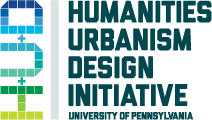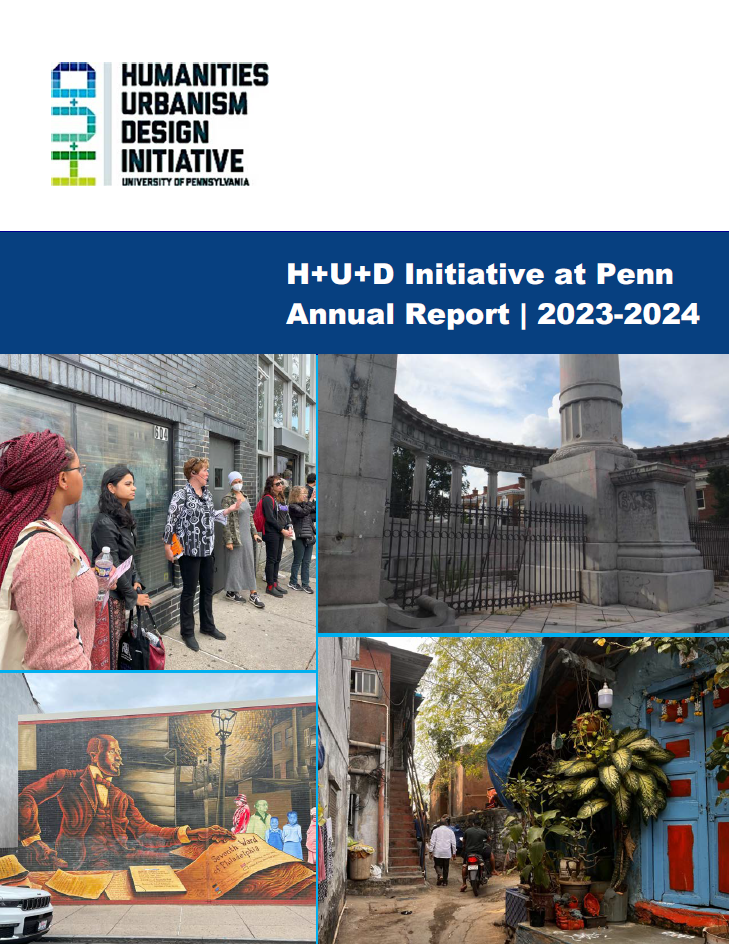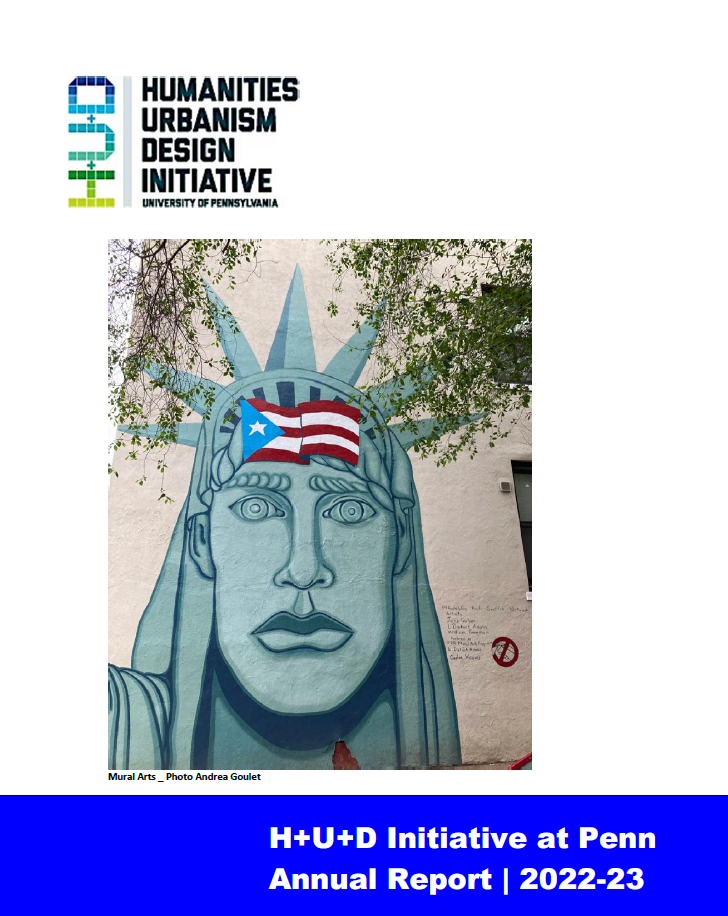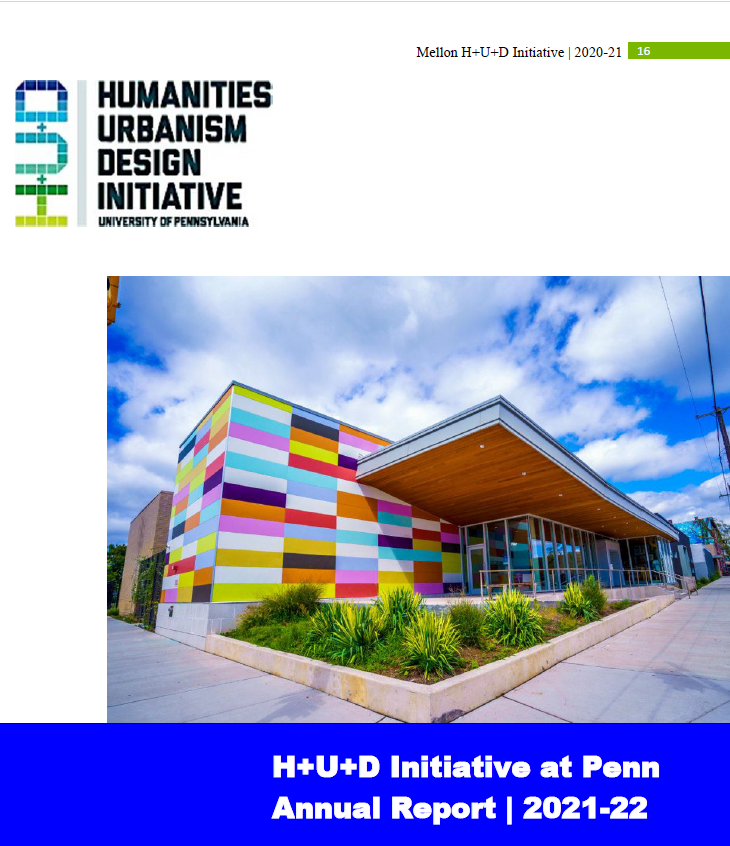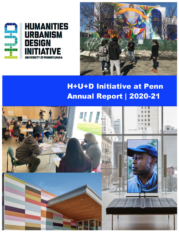
During 2020-21, the third year of the renewed $1.5 million Mellon grant under the theme “The Inclusive City, Past, Present, and Future,” the Humanities, Urbanism, and Design (H+U+D) Initiative successfully brought together faculty and students from the Weitzman School of Design and the School of Arts and Sciences to build a supportive, collaborative, and multi-disciplinary setting for the study of the built environment. Focusing on themes of inclusivity and diversity, H+U+D continued its core components: a Colloquium comprised of fifteen faculty members from humanities and design fields who meet bi-weekly, course sponsorship, public lecture support, fellowships, and student research awards. This year, H+U+D welcomed Andrea Goulet (Romance Languages, School of Arts and Sciences) as a new co-director of the Initiative following the retirement of founding H+U+D co-director, David Brownlee (History of Art, School of Arts and Sciences). Other additions to the Colloquium included six new faculty members who were each appointed for two-year terms, two inaugural Junior Fellows, and two new Doctoral Dissertation Fellows.
As a result of the ongoing Covid-19 pandemic, H+U+D’s activities took place virtually this year, including Colloquium meetings, courses, and sponsored lectures. Although we were unable to meet in person, it proved to be an extremely fruitful year centered around rich intellectual exchanges, dynamic guest speakers, exhibitions, a book launch, and productive H+U+D classes. H+U+D sponsored six courses in 2020-21: a gateway seminar, an “Anchor Institution” seminar, a city seminar, a “Problematics” graduate seminar, and two seminars taught by the H+U+D Junior Fellows. The city seminar did not include the usual travel component because of the pandemic; however, we hope travel may again be possible next year. One highlight of the H+U+D project this year was the successful and rewarding partnership with our “Anchor Institution,” Taller Puertorriqueño, a community-based cultural organization whose primary purpose is to preserve, develop, and promote Puerto Rican arts and culture in the City of Philadelphia. Students in the “Anchor Institution” seminar, which was taught in collaboration with Taller, were able to safely visit the non-profit several times during the spring. They also published the results of the seminar’s “charette” study at the end of the semester.
Over the past year, we continued support of undergraduate research with the Mellon Undergraduate Research Colloquium and were pleased to increase support for graduate student research, awarding small grants to eight doctoral students from both humanities and design disciplines. Although the H+U+D student awardees were more limited in their ability to travel this year, many of them devised innovative ways to interview subjects, map cities, and carry out their research remotely.
Next year, we look forward to Franca Trubiano (Architecture, Weitzman School of Design) joining Andrea Goulet as a co-director of the H+U+D Initiative. We are also delighted to partner with the Philadelphia Lazaretto as our “Anchor Institution” for 2021-22, and we are excited to resume our activities in person this Fall, as outlined by current University protocols.
Click below to download the full report
